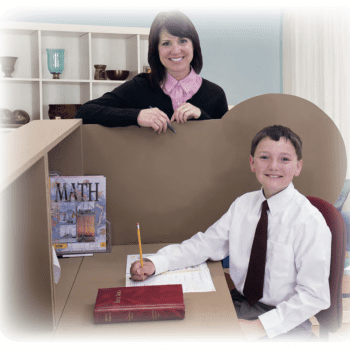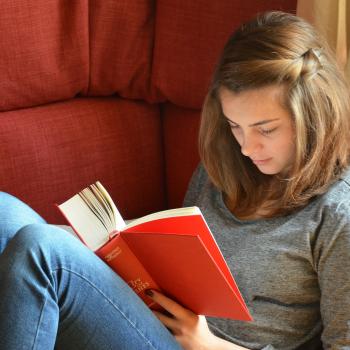
A Guest Post by Lana
I found the above comment on HSLDA’s facebook page, presumably by some homeschool mom who has been trained to laugh at the socialization question. And it made me angry. See, it’s fine if homeschool parents want to tell their stories about how they were socially awkward as public school kids, or how they are a social misfit. I will not laugh at their stories. But you know what, when homeschool parents laugh at the homeschool socialization question, they are actually laughing at real people. We have stories, too.
Mrs. Karen, you are laughing at real people.
Like…….
I used to say those things myself. Homeschoolers may often be more comfortable with people of other ages. It can be quite difficult for homeschool grads to socialize with people their own age – even with other homeschoolers. My siblings and I made some rough transitions as we learned socialization skills as adults despite our childhood of being able to talk to adults and those younger than we were. We were praised for being so polite and chatty, but we were sadly mis-socialized. Many homeschool grads have written blog posts about learning to talk to people their own age. There is another side to the story of socialization if you care to hear it from us.
I am credible to comment concerning this issue, as I was home schooled until I was thirteen years old, in a Christian home, I know many home schooler’s, used a curriculum, joined every homeschool-er socialising group out there, from p.e, to art, etc. You get it, I’m sure.
On to my point. I’d agree, homeschooler’s are not unsocialized one bit; the problem is that they are negatively, over demographically socialized. They socialize mostly with homeschooler’s, or Mommy’s friend’s that aren’t homeschooler’s, their worldview is almost entirely adopted from your own, and they are, in every view to You, an the rest of the world, productive, socialised, intelligent, etc. You ask them, and they will never think they are unsocialized or weird- because they wouldn’t know what it is like to be normal.
It isn’t that they’re bad… perhaps they are better. But they are very naive to the way the world really works. We all want to protect our children from anything that might hurt them. But if we never let them go outside so that they can see they’ll get hit by cars if they cross the street, then when they finally do go outside, they will get hit. Or worse, they will never go outside, and it will become a hereditary, narrowly exposed subculture, another one of the many minorities that the majority may rule, but have the irritation of providing rights.
[….]
I hope you ponder this though, I’ve been through homeschooling, private schooling, public schooling, college, and corporate work environment, and my interaction and ability to network, succeed and attain would have been severely stunted had I never learned HOW the world works. It is correct that i would be just as qualified and intelligent, if not more, to obtain my job and gpa, but it isn’t just about how smart you are, in the world. And as sad as it is, It’s true.
Anne.
I remember feeling this way too. Our family lived down the street from a highschool at one point, and I remember watching out my bedroom window every afternoon as the school kids walked by and wishing I could have the giddy happiness they had. I’d cry at nights listening to the cheering and music at football games, and wished I could go to highschool, but I was always taught how negative it was so I finally gave up hoping.
Now I’m 30 years old, with four years of college and eight years of work between me and my teen self, yet I still feel the effects of the isolation I experienced growing up.
First, I still feel significant social anxiety in even the most non-threatening situations. I am particularly at a loss in group settings full of new people. What do I say? When do I say it? Whom do I say it to? How/when do I end a conversation? Even in a circle setting, when it’s my turn to say my name, my blood pressure skyrockets.
Second, in the whole world, there is no place and no group of people where I feel like I belong. It’s like I was raised in a different culture, with the distinct difference that I can never go “home” to it. I’m permanently a foreigner; interacting in this foreign culture takes a lot of attention and effort. I’ve tried to catch up on the culture I missed…to watch the movies, to listen to the music, to see pictures of the clothing styles…..but it will never mean to me what it means to you. People always use cultural references and nostalgia as a way to build community and connections between people; for me, they create distance and remind me how different I am inside.
I know in my case, when I spent some time at a Southern Baptist university, many of the former home school kids used to joke about being “awkward home school kids”, though the isolation didn’t effect them a fraction as much as it did me.
Fly.
I feel the exact same way when I see my younger sister, who isn’t homeschooled interacting with peers the way I never got to as a homeschooled kid.
Not to mention how left out I feel seeing the kids I graduated with posting photos of events that happened when I was being isolated for 5 years during a very important time (5th to 10th grade). They’re still close to each other and I feel like an outsider. We were friends in elementary school and highschool, but those years mean nothing compared to the years where friendships are made around the early teen years…
You are right, homeschooling does make people different. I was supposedly home schooled but my parents never bought any books. I have forgiven them for that but at the time it was horrendous because I felt very lonely and isolated as a teenager even though I had three siblings. The negative part was going to college with an education that stopped at 6th grade (I went to church school before that) and trying to figure out how normal people live.
Yes, yes, yes. I was homeschooled as well. I thought it was fantastic at the time but now am seriously reconsidering how awesome it was.
Yes, there were benefits:
[….]
-Ability to develop self motivation…but also detriments:
-Difficulty in participating in collaborative projects.
I agree. One of the things that has helped me feel like I fit in more is that I realized there are tons of people around me who also feel like they don’t fit in. The problem, I think, growing up homeschooled propagates is that there really are no other choices for kids. If you’re a misfit, you’ll never really have the chance to change that inside the homeschool environment. At least in school, there’s that possibility that you’ll find a group where you fit or change schools or any number of things that could help. For me, I was trapped. There was no choice available to me. And since the problem was rooted in my parents’ choices, there was also no one I could go to for help out of a bad situation.
An articulate, self-confident child who converses easily with adults is not necessarily well socialised! And the belief that they are will make it all the harder for that child to cope with the problems they face when they do eventually try to participate in a group their own age. When parents constantly dismiss concerns about socialisation, children internalise it as true. Then if they have trouble relating to peers or interacting socially, they may blame themselves: “I know was well socialised, so it must be something inherently wrong with me. I’m unlikeable, I say the wrong things, I’m clumsy…” I felt this way, and many of my homeschooled peers also went through periods of great depression when they began attending university and couldn’t cope socially.
Me.
I left her house tear-eyed because I wanted to be the public school girls so bad. I felt the isolation of the nerdy-cultured homeschool girl. And I looked over in the corner at the public school girls sending text messages and laughing and thought, I never got to do that.
When I’m in Asia, and an Asian friend tells a joke, and everyone laughs but me, I don’t feel crazy because maybe I missed a sentence or two because of the foreign language, or maybe its just an inside joke I’ll never understand. I have an excuse for the disconnect. But when I see teens hovered in corners in the states, I cry wishing I could turn back the clock,
thinking, wishfully, that if I could start over and be socialized in a group that my life today would be different.
I was totally comfortable around all of the adults at my parents’ evangelical megachurch, but I was profoundly uncomfortable around the (non-homeschool) teens there. I grew up hearing that the whole “being comfortable around adults but not around peers” thing was not a sign of maturity, but that’s nonsense. It’s actually a sign of a problem. When you’re a child, interactions with adults are fairly formalized.
[…..]
I think what it comes down to is this: I was well socialized in homeschool circles, but not socialized beyond them. I was completely familiar and comfortable with other homeschooled students, but public schooled students were completely foreign and therefore frightening. They were unpredictable because I didn’t know what made them tick. I didn’t know their language, their habits, their customs. To some extent, the reason that I do so much better now is because I have been living among people who were public schooled (i.e. in mainstream society) long enough to learn their customs. It’s like moving to a foreign country: at first everything is completely foreign and often unintelligible, but over time you learn the culture and begin to fit in.
 I think about this when I watch my daughter Sally. She never had to learn to navigate mainstream culture – it’s completely natural to her. I think what I feel watching her is often similar to what someone raising children in a foreign country must feel as they watch their children naturally and effortlessly picks up the customs and habits that continue to feel strange and foreign to them. She never had to learn these things the way I’ve had to learn them.
I think about this when I watch my daughter Sally. She never had to learn to navigate mainstream culture – it’s completely natural to her. I think what I feel watching her is often similar to what someone raising children in a foreign country must feel as they watch their children naturally and effortlessly picks up the customs and habits that continue to feel strange and foreign to them. She never had to learn these things the way I’ve had to learn them.
I can’t believe Mrs. Karen got 131 likes! But then again, I can believe it because all current research, funneled by Dr. Brian Ray’s shady research, is devoted to telling homeschool mothers that homeschool socialization problems do not exist. Google “socialization statistics,” and an article about homeschool socialization for the Washington Times, written by the president of HSLDA, pops up as the first article on the page. How is it that major newspapers such as Washington Times have managed to overlook the stories of homeschool graduates?
Simple: homeschool leaders lied to us. They had an agenda in mind.
Mrs. Karen and other homeschool moms, there’s another side to homeschool socialization if you care to listen.
Originally posted on Lana’s excellent blog, Wide Open Ground.














